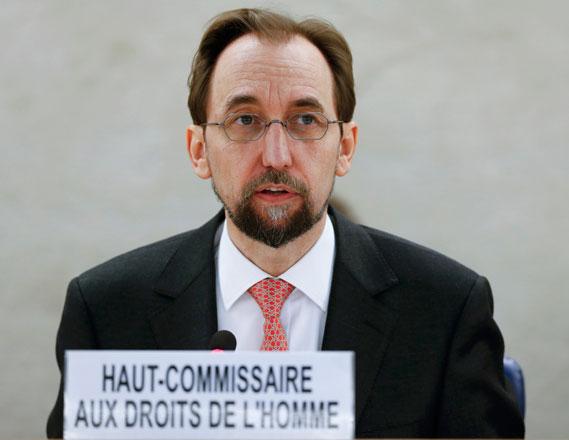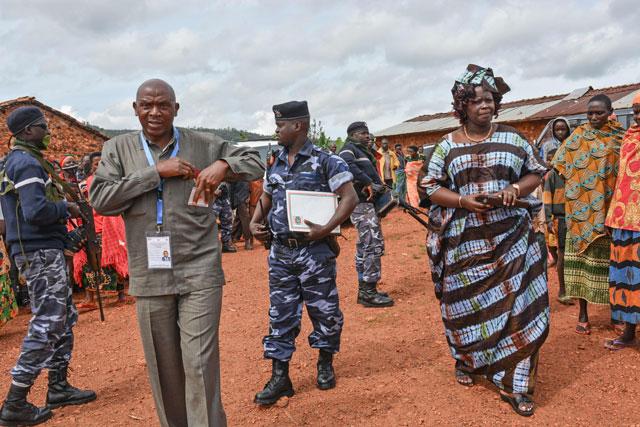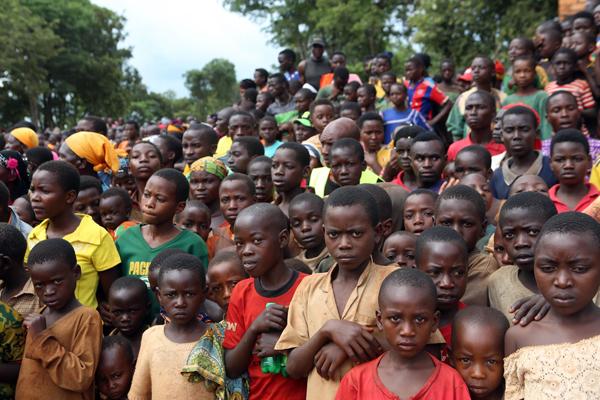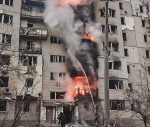You are here
UN rights chief blames Burundi leaders for mounting violence
By Reuters - Dec 17,2015 - Last updated at Dec 17,2015

United Nations High Commissioner for Human Rights HH Prince Zeid addresses delegates during a special session of the Human Rights Council on the situation in Burundi in Geneva, Switzerland, on Thursday (Reuters photo)
GENEVA — The UN High Commissioner for Human Rights accused Burundi's authorities on Thursday of dragging the country towards full-blown civil war and called for travel bans and asset freezes targeting key officials to try to halt the bloodshed.
Speaking at a special session of the UN Human Rights Council, HH Prince Zeid condemned a campaign of political repression that included beatings, arrests and house-to-house searches in which he said at least 400 people had been killed and nearly 3,500 detained.
As Prince Zeid, other UN officials and Western envoys expressed alarm at the escalating violence in a country that only emerged from a 12-year civil war in 2005, the government in Bujumbura insisted it was open to "a broad-based inclusive dialogue".
The surge of violence in Burundi has unnerved a region that remains volatile two decades after a genocide in neighbouring Rwanda. The country's current political crisis pits supporters of President Pierre Nkurunziza against opponents who say his re-election in July for a third term violated the constitution.
Tensions have been running particularly high since gunmen attacked military sites in the capital Bujumbura last Friday.
"Burundi is at bursting point, on the very cusp of a civil war," Prince Zeid told the session of the UN Human Rights Council in Geneva, which agreed by consensus to send an investigation team to Burundi, an initiative led by the United States.
"Today's special session is an attempt to prevent — and that's a key word, prevent — mass atrocities by focusing attention and providing expert assistance in the region before it is too late," said US Ambassador Keith Harper.
Prince Zeid said his office had documented 312 killings since public demonstrations began in April, including 19 children. "Over the last bloody weekend in Bujumbura, government figures indicate that another 87 people were killed, but figures we have received from other sources are considerably higher," he added.
As well as travel bans and asset freezes, Prince Zeid called for close monitoring of Burundi's borders, perhaps by drones, to stop the reported flow of weapons into the African country.
Zeid said the International Criminal Court in The Hague should also get involved, a call backed by the UN special adviser on the prevention of genocide, Adama Dieng.
Dieng urged the establishment of a commission of inquiry to investigate human rights violations with a view to prosecuting those responsible, adding: "No one should underestimate what is at stake. A civil war between 1993 and 2005 cost over 300,000 lives and displaced more than 1 million people."
Burundi's civil war pitted rebel groups of the Hutu majority, including one led by Nkurunziza, against what was then an army led by the Tutsi minority. Rwanda has the same ethnic mix. Dieng said the current crisis was primarily political, but said leaders were also manipulating the ethnic factor.
Related Articles
BUJUMBURA — Burundians stood in long lines on Thursday to vote in a referendum that could let President Pierre Nkurunziza stay in power to 2
BUJUMBURA — Street battles and gunfire erupted again in the capital on Thursday as protesters against President Pierre Nkurunziza rejected h
NAIROBI — Burundi's President Pierre Nkurunziza said on Wednesday that Burundians would fight against any peacekeepers sent into the country


















